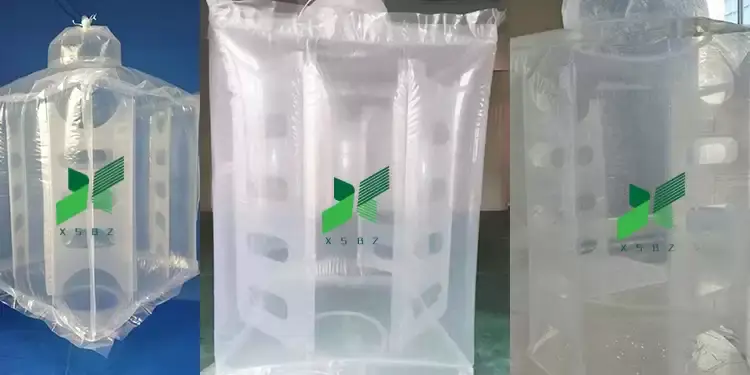In the world of logistics and material handling, choosing the right bulk container is crucial for efficient and safe transport of goods. This comprehensive guide explores the various types of bulk containers, including Intermediate Bulk Containers (IBCs), their applications, and how to select the best option for your needs.
What Are Bulk Containers?
Bulk containers are heavy-duty storage containers designed to hold and transport large volumes of materials, ranging from liquids to solids. They are essential in industries that deal with bulk cargo, facilitating efficient storage and transportation while ensuring the safety and integrity of the contents.
Introduction to Intermediate Bulk Containers (IBCs)
An Intermediate Bulk Container (IBC) is a reusable industrial container designed for the transport and storage of bulk liquids and granulated substances, such as chemicals, food ingredients, solvents, and pharmaceuticals. IBCs are known for their versatility and efficiency in handling a wide range of substances.

Types of Bulk Containers
There are several types of bulk containers available, each tailored to specific materials and applications. Understanding these types helps in choosing the right container for your needs.
1. Rigid Intermediate Bulk Containers
Rigid IBCs are often made from materials like stainless steel, carbon steel, or high-density polyethylene (HDPE). They are designed to handle hazardous and non-hazardous liquids and are known for their durability.
2. Flexible Intermediate Bulk Containers (FIBCs)
Also known as bulk bags or big bags, FIBCs are flexible containers made from woven polypropylene fabric. They are ideal for transporting and storing dry, flowable products such as sand, fertilizers, and granules.
3. Composite IBCs
Composite IBCs combine a rigid outer frame, usually made of steel, with an inner plastic container (typically HDPE). They are commonly used for transporting liquids and offer a balance between durability and weight.
Understanding Liquid and Solid Bulk Containers
Bulk containers are specifically designed based on whether they will hold liquid or solid materials.
Liquid Bulk Containers
These are engineered to prevent leaks and often include features like:
- Secure lids or caps
- Valves for controlled dispensing
- Reinforced walls to withstand internal pressure
Solid Bulk Containers
Designed for materials like powders, grains, or granules, these containers often have:
- Easy access points for loading and unloading
- Stackable designs for efficient storage
- Collapsible options for saving space when not in use
Common Types of IBCs
Understanding the common types of IBCs is essential for selecting the appropriate container.
Plastic IBCs
- Made from HDPE
- Suitable for non-hazardous liquids
- Lightweight and often stackable
Stainless Steel IBCs
- Ideal for hazardous materials and food-grade applications
- Durable and resistant to corrosion
- Easy to clean and reusable
Composite IBCs
- Combine the benefits of plastic and steel
- Feature a plastic inner container and steel outer frame
- Commonly used for chemicals and pharmaceuticals
Flexible IBCs
- Constructed from woven polypropylene
- Used for transporting bulk solid materials
- Available in various designs, including collapsible containers

Flexible vs. Rigid IBCs
Flexible IBCs (FIBCs) are lightweight, collapsible, and cost-effective, making them suitable for transporting bulk cargo like grains, sand, and chemicals.
Rigid IBCs, on the other hand, offer robust protection for liquids and hazardous materials. They are durable and often used in industries where material integrity is paramount.
Choosing the Right Bulk Container
Choosing the right bulk container depends on several factors:
- Material Compatibility: Ensure the container material is compatible with the contents.
- Capacity Requirements: Select a size that meets your volume needs.
- Regulatory Compliance: Containers must meet industry regulations, especially for hazardous materials.
- Handling and Transportation: Consider how the container will be moved, including loading and unloading processes.
- Reusable vs. Disposable: Decide if you need a reusable container for long-term use.
Applications of Bulk Containers in Various Industries
Bulk containers are used across various industries, including:
- Agriculture: For transporting seeds, grains, and fertilizers.
- Chemical Processing: Handling chemicals and hazardous materials safely.
- Food and Beverage: Storing and transporting food ingredients and liquids.
- Pharmaceutical: Ensuring the purity and safety of sensitive materials.
- Construction: Moving bulk materials like sand and cement.

[Source: Industrial bulk bags for agriculture]
Safety Considerations When Using IBCs
When using IBCs, especially for hazardous materials, safety is paramount.
- Regular Inspections: Check for signs of wear, damage, or leaks.
- Proper Labeling: Clearly label contents to prevent mishandling.
- Compliance with Regulations: Adhere to local and international transport regulations.
- Use of Appropriate Accessories: Employ correct valves and fittings for dispensing.
Innovations in Bulk Container Design
Advancements in technology have led to innovative features in bulk containers:
- Collapsible Designs: Save space when containers are empty.
- Enhanced Materials: Use of polyethylene and other plastics for better durability.
- Improved Access Points: For easier loading and unloading.
- Stackable Options: Optimize storage space.

[Source: PP Woven Jumbo Bag Baffle Formed Liner]
Conclusion
Bulk containers, including various types of IBCs, play a critical role in the transport and storage of materials across industries. By understanding the differences between container types and their specific applications, businesses can make informed decisions that enhance efficiency, safety, and cost-effectiveness.
Key Takeaways
- Bulk containers are essential for efficiently handling large quantities of materials.
- Intermediate Bulk Containers (IBCs) come in various forms, each suited for specific materials.
- Choosing the right container involves considering material compatibility, capacity, and regulatory compliance.
- Safety and proper handling are crucial when using IBCs, especially with hazardous materials.
- Innovations continue to improve the functionality and efficiency of bulk containers.
For more information on bulk containers and to explore a wide range of options, visit PP Woven PE Bulk Container Liners and Baffle Bulk Form Fit PE Big Bag Liner.
Post time: Dec-12-2024



